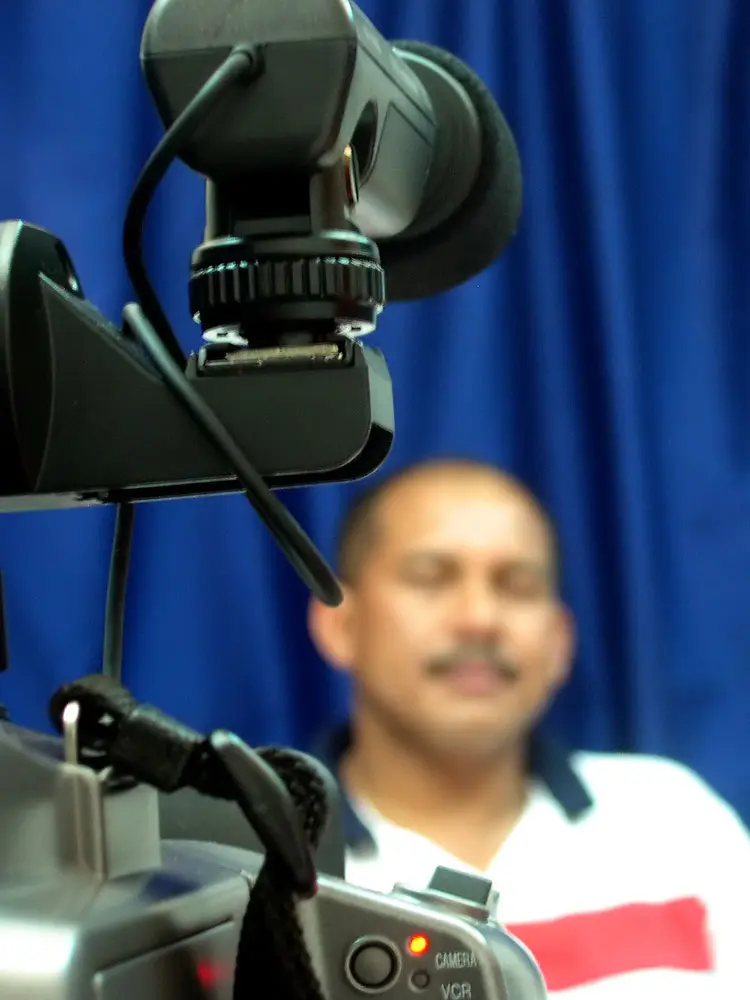How legal video depositions improve witness credibility in courtrooms
The Value of Lawful Video Depositions in Modern Legal Solutions: What You Ought to Know
Lawful video depositions have come to be vital in today's lawful landscape. They provide a multidimensional sight of witness statements that conventional records just can not match. By recording both non-verbal and spoken interaction, these depositions improve the general understanding of a witness's credibility. Nevertheless, the effectiveness of video clip depositions depends upon numerous elements, consisting of conformity with lawful criteria and best practices (legal video depositions). Checking out these aspects discloses their real value in contemporary legal solutions
What Are Legal Video Depositions?
Lawful video clip depositions function as an important tool in the lawsuits procedure. They involve tape-recording witness statements in a video clip layout, recording both non-verbal and verbal interaction. This method allows lawyers to document the disposition, expressions, and reactions of witnesses, giving a richer context for the testimony. Generally conducted in a regulated setting, these depositions are led by lawyers that ask inquiries while a stenotype reporter records the discussion. The resulting video clip can be crucial for trial prep work, as it enables attorneys to evaluate the credibility of witnesses and fine-tune their approaches. Additionally, lawful video depositions can be used in various lawful contexts, ranging from civil disputes to criminal cases. The auditory and visual components of video depositions enhance the presentation of evidence, making it an essential part in the contemporary legal landscape. Generally, they add considerably to the effectiveness and efficiency of lawful proceedings.

Advantages of Video Clip Depositions Over Conventional Approaches
Video depositions use various benefits compared to traditional methods of taking witness statements. One considerable advantage is the capability to capture both audio and aesthetic components, providing a much more extensive record of the witness's statements. This double style boosts clearness and enables attorneys to reference particular subtleties during test preparation. Additionally, video clip depositions facilitate remote involvement, making it simpler for witnesses that might be inaccessible for in-person looks as a result of geographical restrictions or wellness issues.Moreover, video depositions can expedite the total deposition procedure, decreasing the moment and costs linked with traveling and logistics. They also improve accessibility, as taped depositions can be quickly shared amongst legal groups and referenced at any time. This comfort adds to far better situation management and preparation. In general, video depositions represent a contemporary, effective approach to collecting witness testaments, aligning with the evolving needs of the legal profession.
The Duty of Body Language and Tone in Testimonies

In legal video depositions, body language and tone play important functions in communicating a witness's credibility and dependability. Nonverbal hints can supply insights right into a witness's mood, influencing exactly how their testament is perceived. Comprehending the impact of these components is vital for lawyers and jurors alike when assessing the dependability of a statement.
Nonverbal Interaction Insights
While verbal communication is often emphasized in lawful testaments, nonverbal cues such as body language and tone play an essential role in conveying trustworthiness and emotion. Observers of depositions might note that a witness's stance, gestures, and face expressions can substantially influence perceptions of dependability. Constant eye call may signify confidence, while avoiding look could recommend dishonesty or pain. The tone of voice-- its pitch, pace, and quantity-- can present sensations of genuineness or unpredictability. Lawyers have to be attuned to these nonverbal signals, as they typically give crucial context that matches spoken words. Recognizing these subtleties can improve the efficiency of depositions and influence the end result of lawful process.
Psychological Tone Impact
The psychological tone shared throughout legal testaments considerably impacts just how a witness is regarded. Body language, vocal inflections, and faces play vital functions fit the narrative of a testament. A witness displaying self-confidence via constant eye get in touch with and a calm tone can infuse a feeling of integrity and engagement. On the other hand, indications of anxiousness, such as fidgeting or a shaky voice, might lead to uncertainty regarding their account. The subtleties of emotional expression can influence the analysis of facts, making it important for legal specialists to identify these cues. In video clip depositions, the visual and auditory elements integrate, stressing the importance of psychological tone in conveying genuineness and truthfulness within the lawful process.
Credibility and Reliability
An essential factor in establishing reliability and trustworthiness during testaments depends on the witness's body movement and tone of voice. Viewers usually count on non-verbal cues-- such as eye get in touch with, pose, and motions-- to evaluate a witness's sincerity. As an example, a witness who preserves eye get in touch with and shows open body movement may be regarded as even more honest and dependable than one who prevents eye get in touch with or shows up closed off. Furthermore, intonation plays a necessary duty; a steady, calm tone can strengthen the integrity of the testament, while fluctuations in pitch or volume might raise doubts. Eventually, the combination of body language and vocal tone significantly affects exactly how a witness's statements are received and analyzed in a lawful context.
Ideal Practices for Performing Video Depositions
Conducting video depositions needs mindful planning and implementation to ensure a clear and efficient presentation of statement. First, it is necessary to pick a quiet, well-lit location to lessen distractions and safe ideal video top quality. The tools must be evaluated in breakthrough, including video cameras, microphones, and lights, to avoid technological concerns throughout the deposition.Next, parties entailed have to assess the style and treatments ahead of time, making certain that everybody recognizes their functions. The deponent ought to be briefed on the procedure, consisting of exactly how to respond clearly and concisely.Additionally, preserving a specialist disposition throughout the session is vital. This includes refraining from speaking over one another and verifying that all questions are guided properly. Ultimately, it is crucial to tape-record the deposition in a style that enables very easy playback and review, protecting the stability of the statement for future use.
Legal Considerations and Compliance Issues
Exactly how do legal considerations and compliance concerns affect the performance of video clip depositions? Attorneys must browse a complex landscape of regulations, guaranteeing that video clip depositions abide by administrative regulations and criteria. Conformity with regulations concerning privacy, permission, and tape-recording approaches is necessary. Getting explicit approval from all celebrations entailed is necessary to avoid lawful repercussions.Additionally, the admissibility of video clip evidence in court can hinge on conformity with procedural requirements. Making certain that the tools utilized satisfies technical standards is likewise crucial, as inadequate top quality can undermine the deposition's reliability.Moreover, lawyers must understand any kind of details state regulations that control video clip depositions, as these can differ greatly. Failure to deal with these considerations can not only threaten the stability of the deposition yet likewise affect the total situation method, inevitably affecting the client's legal end results.
How Video Depositions Influence Jury Assumption
While video depositions can function as effective tools in lawful procedures, their impact discover this on jury perception is substantial. The auditory and aesthetic elements of video recordings give jurors with a more comprehensive understanding of witness attitude, integrity, and emotional actions. This multimedia strategy can enhance the jurors' capacity to examine the integrity of testimony contrasted to conventional text-based transcripts.Moreover, video depositions permit jurors to observe body language, tone of voice, and faces, every one of which can impact their interpretation of the witness's declarations. The visibility of a witness on display can humanize them, fostering compassion and link, which may guide jurors' opinions. Conversely, a witness that appears undependable or evasive on video clip may result in adverse assumptions that influence a court's choice. Inevitably, the vibrant nature of video depositions plays a crucial duty fit exactly how jurors analyze evidence and reach their judgments.
The Future of Video Clip Depositions in Legal Method
As advancements in innovation remain to improve the lawful landscape, the future of video clip depositions is positioned for considerable development. Innovations such as man-made intelligence, virtual truth, and boosted video clip conferencing devices are expected to streamline the deposition procedure and enhance availability. Legal professionals may utilize AI-driven analytics to examine witness reputation and instance toughness a lot more effectively.Moreover, the integration of digital reality can allow juries to experience immersive simulations of depositions, supplying much deeper context and understanding. In addition, the pattern towards remote depositions is likely to continue, providing higher flexibility for attorneys and customers alike.As remote work becomes increasingly normalized, video clip depositions will likely become basic method, reducing prices and time restrictions connected with conventional approaches. On the whole, these technical advancements assure to boost the performance, effectiveness, and availability of video depositions in legal technique, eventually transforming exactly how attorneys plan for test.
Frequently Asked Concerns
Just How Much Do Lawful Video Depositions Commonly Price?

Can Video Clip Depositions Be Used in Any Kind Of Case?
Video depositions can be utilized in numerous kinds of cases, including civil, criminal, and family members legislation. Their versatility permits attorneys to existing witness statements properly, adjusting to the specific demands of various lawful scenarios.
What Equipment Is Required for a Video Deposition?
To perform a video deposition, vital tools consists of a top quality video camera, microphone, illumination, and a trusted recording tool. In addition, a computer system with editing and enhancing software program may be required for post-production and formatting the final video.
How much time Does a Normal Video Clip Deposition Last?
A typical video clip deposition lasts in between two to four hours, relying on the complexity of the case and the number of questions postured. Prolonged sessions might take place, but breaks are typically integrated for participant comfort.

Are Video Clip Depositions Admissible in Court?
Video clip depositions are usually admissible in court, provided they stick to these details lawful requirements and guidelines of evidence. Their use enhances clearness and preserves witness testimony, aiding in the judicial process throughout hearings and trials. Lawful video depositions have actually ended up being crucial in today's lawful landscape. Furthermore, legal video clip depositions can be utilized in different lawful contexts, varying from civil disagreements to criminal situations. Additionally, video depositions assist in remote involvement, making it much easier for witnesses who might be inaccessible for in-person appearances due to geographical constraints or health issues.Moreover, video depositions can quicken the overall deposition process, reducing the time and costs linked with travel and logistics. Guaranteeing that the devices made use of satisfies technological criteria is additionally essential, as bad high quality can threaten the deposition's reliability.Moreover, lawyers should be mindful of any type of details state laws that regulate video depositions, as these can differ greatly. Furthermore, the fad toward remote depositions is likely to persist, providing higher versatility for attorneys and clients alike.As remote job ends up being progressively normalized, video depositions read this post here will likely become standard practice, reducing costs and time restrictions associated with typical techniques.